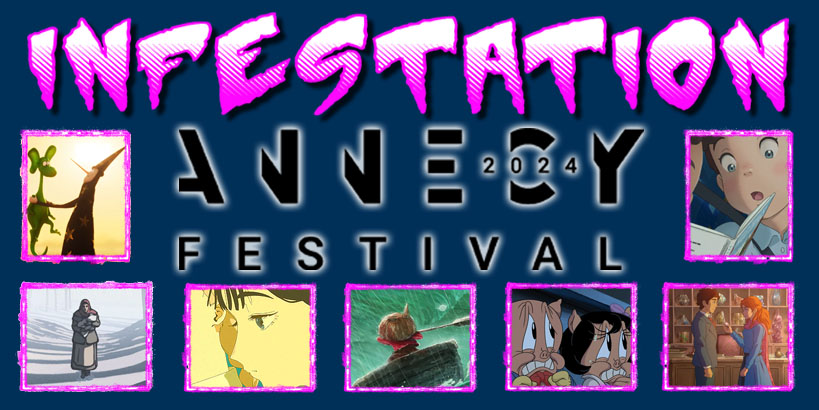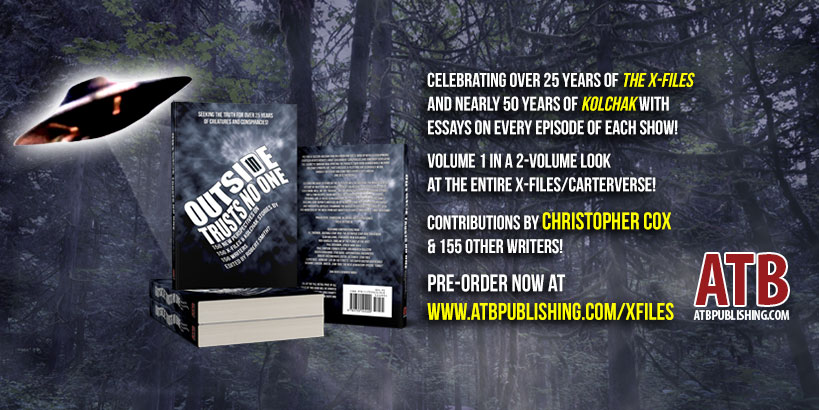INTERVIEW WITH THE DIRECTOR OF “THE GLASSWORKER” USMAN RIAZ
Our own man on the ground in Europe, Maciej Kur, covered the amazing Annecy Animation Festival for us again this year. In addition to all the separate podcast reviews he has coming up with us for films he saw there, he got a chance to sit down with animator Usman Riaz to talk about his incredible new film “The Glassworker”. You can check out the trailer for the film right here and a look at the making of it right here.
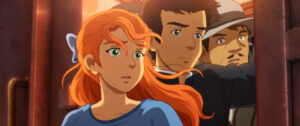
Maciej: Do you remember seeing your first animated movie in a theater?
Usman: Yes, I vividly remember watching my first animated movie in a theater. It was the Lion King. The experience was magical and deeply influenced my love for animation. It was a moment of pure wonder that ignited my passion for storytelling and visual art. I was a child while watching it, so I didn’t think right at that moment “I want to be an animator!” but it influenced me deeply and got me curious about filmmaking and the art of animation.
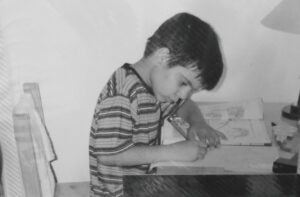
Maciej: “The Glassworker” is the first hand-drawn feature film from Pakistan. Why do you think it took so long for Pakistan to have this type of movie?
Usman: Creating a hand-drawn animated film requires significant resources, expertise, and industry support, which have historically been lacking in Pakistan. The industry is still developing, and there have been challenges in terms of funding, training, and technological access. This is why it took so long to produce a film of this kind in Pakistan. We had to train everyone (while also learning ourselves). It was an extremely difficult, amazing, and humbling experience.
Maciej: What pushed you to decide to make this movie and start your own studio, Mano Animation?
Usman: The decision came from a desire to tell unique stories that resonate both locally and globally. I saw an opportunity to create something that hadn’t been done before in Pakistan. My inspiration came from my love for traditional animation and the need to bring high-quality, hand-drawn films to Pakistan. Starting Mano Animation Studios was a way to fulfill this vision.
Maciej: What were the biggest challenges in gathering the crew? What helped you conquer the skepticism?
Usman: One of the biggest challenges was finding skilled artists and animators who shared my vision. Many professionals, including doctors and dentists, were willing to switch careers to work on the film, which was remarkable. Convincing their families that a career in animation was viable in Pakistan involved a lot of passion and persistence. Showcasing our dedication and progress helped overcome skepticism. It was tough, but it worked out in the end.
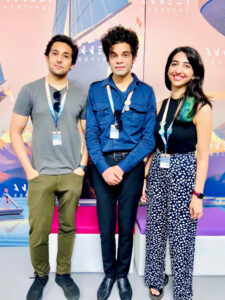
Maciej: Let’s talk about the plot. How did you come up with the story behind “The Glassworker”?
Usman: The story of “The Glassworker” is inspired by personal experiences and observations of the world around me. It’s about two children growing up in a glass shop and the challenges they face as war encroaches upon their peaceful town. This narrative reflects themes of beauty, craftsmanship, and the impact of conflict on ordinary lives, mirroring my personal journey and the environment I grew up in.
Maciej: Are there any elements of “The Glassworker” that are unique to Pakistani culture?
Usman: Yes, the film incorporates architectural styles, traditional clothing, and elements of Pakistani folklore, such as the concept of ‘jinns.’ These cultural nuances are woven into the narrative to provide an authentic representation of Pakistan while telling a universal and unique story.
Maciej: Are there any elements you think were missing in modern animation that you wanted to try in “The Glassworker”?
Usman: I wanted to emphasize the charm and artistry of hand-drawn animation, focusing on detailed backgrounds and expressive characters. Many modern animations rely heavily on digital techniques, and I felt there was a need for a more tactile, human touch that hand-drawn animation provides.
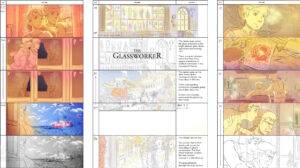
Maciej: What were your top animation influences?
Usman: Hayao Miyazaki, Isao Takahata have been significant influences, especially their approach to storytelling and the anti-war themes present in their work. Other influences include the works of Makoto Shinkai and various artists who create rich, emotional narratives with strong visual aesthetics. I drew all the storyboards for ‘The Glassworker’ because I wanted to emulate my heroes. (Isao Takahata didn’t draw storyboards for his films, Osamu Tanabe did but he had a unique vision for his films that is incredible)
Maciej: What do you hope people will get out of this movie and its message?
Usman: I hope audiences appreciate the beauty of hand-drawn animation and the heartfelt story. The film’s message is about finding hope and beauty even in the darkest times. I want viewers to leave feeling inspired and reflective about the world around them.
Maciej: Do you think the movie will influence the Pakistani animation industry so we see more projects? Do you have hope it will influence things?
Usman: I believe “The Glassworker” can pave the way for more ambitious projects in Pakistan. It demonstrates that high-quality animation can be produced locally, and I hope it inspires others to explore this medium and elevate the industry.
Maciej: You must be very proud of your crew. What does the future hold for Mano Animation?
Usman: Absolutely, I am incredibly proud of ‘The Glassworker’ team. I got to work with a wonderful group of people in Pakistan and a wonderful group of people Internationally, we all worked our hardest to make this film a reality. All three of us, Mariam (co-founder of Mano and Art Director), myself and Khizer (CEO of Mano and Producer) are very grateful. We plan to continue pushing the boundaries of animation and storytelling. Future projects will focus on diverse narratives and innovative techniques to further establish Mano Animation as a (hopefully) significant player in the industry.
Maciej: How do you feel finally seeing the finished movie?
Usman: It’s a mix of pride, relief, and excitement. Seeing years of hard work come to life on screen is incredibly fulfilling. I’m grateful for the journey and excited for what comes next. But I am very happy the journey to make ‘The Glassworker’ is over!
YOUR INTERVIEWER
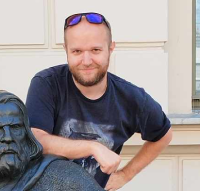 Maciej Kur (Infestation)
Maciej Kur (Infestation)
Maciej Kur is a Polish comic and film script writer, director and reviewer, and decidedly the biggest fan and most loyal supporter of Oneofus.net. A graduate of the Academy of Fine Arts in Warsaw with a master’s degree and the Academy of Film and Television. Co-creator of the comic book series Dollicious and Emilka Sza (with Magdalena Kania ) and Lil i Put, (with Piotr Bednarczyk ) and many others. Awarded in 2014 for a comic book in the spirit of Janusz Christa and awarded for “Złoty Puchar” in 2023. He wrote scripts for new comic books in the Polish cult series “Kayko and Kokosh”, as well as episodes of an animated series based on it (available on Netflix). He wrote for many other shows including “Kicia Kocia” (Kitty Kotty), “Pompik the Bison”, “Pucio”, “Hip-Hip and Hurra” and the upcoming animated movies “The Shrew of Destiny” and “Tytus, Romek and A’tomek”. He also directed a documentary about Polish animation legend “Witold Giersz”. Big lover of the art of animation and comic books.
Please think about becoming a paid subscriber to Oneofus.net, support our huge network of shows, and get access to tons of bonus shows and videos in our forums! We cannot keep this site going without support from our listeners. For added information about being a subscriber, the benefits, and the forums, please go here.

